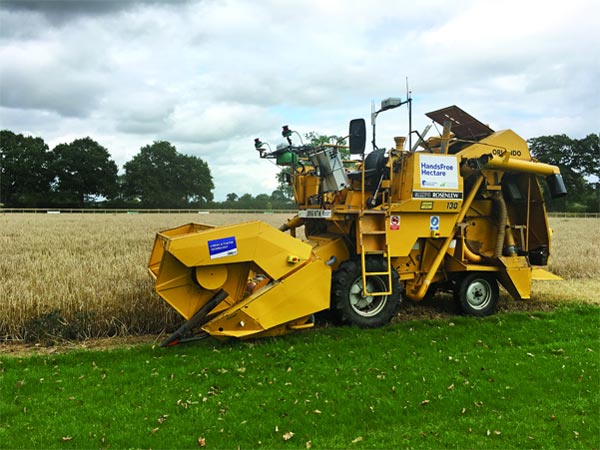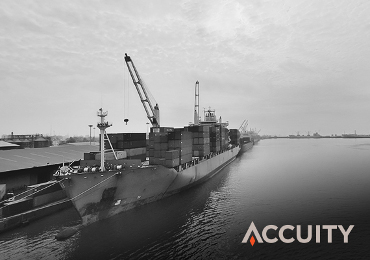Community Care,
6 September 2016
The UK Government and the Local Government Association have launched the ‘Come Back to Social Work’ campaign to address the shortage of experienced social workers in adults and children’s services. The pilot will see 30 social workers offered 13 weeks’ training to help prepare them to re-enter practice in early 2017. This government campaign contributes to the advancement of SDG 4 to ensure inclusive and equitable quality education and promote lifelong learning opportunities for all.
Farmers Weekly,
6 September 2017
The groundbreaking Hands Free Hectare project has just seen its first harvest. This £200,000 Innovation UK-funded project by Harper Adams University with Precision Decisions has modified existing machinery to drill, sow, spray and harvest the crop without any human control. The project aims to show how automation can facilitate a sustainable farming system where multiple smaller, lighter machines will enter the field, minimising the level of compaction (SDG 15, life on land and SDG 9, industry, innovation and infrastructure).
LexisNexis Legal & Professional,
Business Insight Solutions, 16 August 2016
The number of victims of modern slavery in England and Wales has increased fivefold since 2012, according to a new report issued by the Salvation Army. This increase magnifies the risk to companies of doing business with third-parties involved in modern slavery and human trafficking if proper precautions are not taken. Raising awarenress of modern slavery is vital to the advancement of SDG 8.7 to eradicate forced labour, ending modern slavery and human trafficking by 2025.
Community Care,
2 August 2016
According to a Joseph Rowntree Foundation report, responding to poverty-related problems accounts for almost 60% of council spending on children's services in England. This article highlights the financial impact of poverty on public spending in England. Issues related to poverty and inequality are prevalent globally: all countries must tackle SDG 1 and SDG 10.
Personnel Today,
August 2016
Employers should address rising stress and mental health risk through collaboration between internal departments and insurance providers. A dedicated employee risk manager is part of the solution, argues Andrew Woolnough, value propositions director at Willis Employee Benefits. Companies have an important role to play in advancing SDG 3.4 to promote mental health and well-being.
LexisNexis Legal & Professional,
Business Insight Solutions, August 2016
The importance of the media’s reporting on human trafficking and reaction in the media to the UN 'World Day against Trafficking in Person' is analysed in this article. The link between migration and trafficking is also highlighted. This provides insights to assist SDG 8.7 to eradicate forced labour, end modern slavery and human trafficking by 2025.
Accuity,
27 July 2016
Hong Kong's securities regulator reported a spike in the number of instances where the city's financial firms are failing to comply with its anti-money laundering guidelines. It has long been known that money laundering can have significant negative impact on economic growth. Enforcement of regulations to eradicate money laundering contributes to advancing SDG 16.4 by 2030 to significantly reduce illicit financial and arms flows, strengthen the recovery and return of stolen assets and combat all forms of organized crime.
Farmers Weekly,
15 July 2016
Israeli startup tech firm SuperMeat is attracting substantial crowd funding to support its development of chicken meat grown in a laboratory. This technological solution could open the door to an affordable and sustainable source of human food. Developing sustainable sources of conventional meat will contribute to the advancement of SDG 12.2 to achieve sustainable management and efficient use of natural resources in the food sector and address SDG 2 zero hunger.
Accuity,
8 July 2016
Human trafficking is one of the main profit-generating activities for organised criminals in Europe and the revenue generated is often laundered through the financial system. Understanding the complexities of human trafficking is vital to both SDG 8.7 to take immediate and effective measures to eradicate forced labour, end modern slavery and human trafficking and SDG 16.4 to significantly reduce illicit financial and arms flows, strengthen the recovery and return of stolen assets and combat all forms of organized crime.
ICIS,
Special Report, 3 July 2016
Growing demands from brand owners and consumers for fibres and textiles that are more environmentally friendly are now creating a huge market for bio-based polymers produced using renewable feedstocks. The textile and packaging industries have a significant impact on the environment: this report highlights how recent developments in new materials support SDG 9 Industry, Innovation and Infrastructure, and SDG 7 Affordable and Clean Energy.




